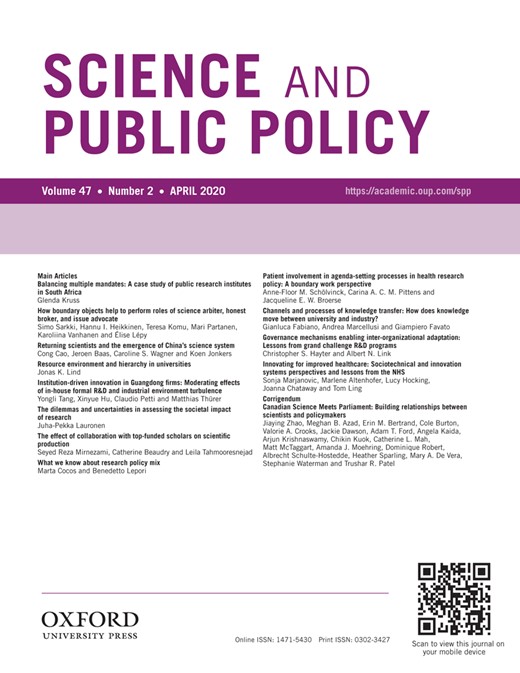-
Views
-
Cite
Cite
Christopher S Hayter, Albert N Link, Governance mechanisms enabling inter-organizational adaptation: Lessons from grand challenge R&D programs, Science and Public Policy, Volume 47, Issue 2, April 2020, Pages 271–282, https://doi.org/10.1093/scipol/scaa003
Close - Share Icon Share
Abstract
From climate change to terrorism, the world is confronting complex, trans-national problems. As a contemporary response, governments and non-profit organizations have established grand challenge programs, consisting of multi-sector research and development partnerships, to access innovative new ideas and rapidly scale solutions. Following recent scholarly contributions, this article investigates how problems motivating program establishment were identified, how these problems and related contextual factors evolve over time, and how grand challenge programs evolve in response. It does so through a multi-year study of ten grand challenge programs that differ substantially in purpose and organization. This article finds that adaptive capabilities—inter-organizational governance mechanisms—and operational aspects such as purpose, scope, temporal factors, and partner capabilities are critical to program evolution and impact.



